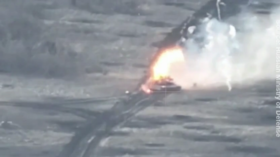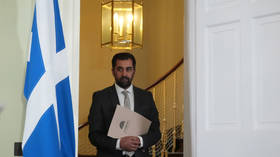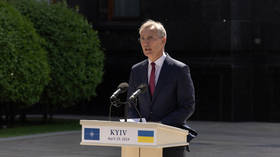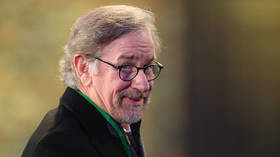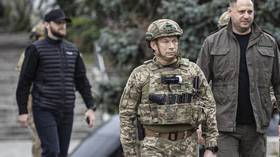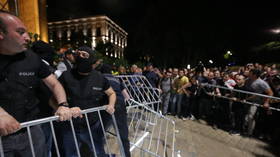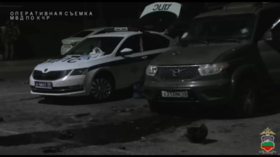White House touts ‘year of suffering’ for Russian troops
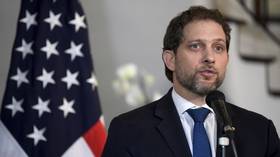
The White House wants to keep funding Ukraine in its conflict with Russia because it believes that in a year Moscow may be willing to concede to Kiev’s demands, an aide to Jake Sullivan, the US national security adviser, said in an interview on Tuesday.
Jon Finer, Sullivan’s principal deputy, discussed the White House Ukraine strategy at an event hosted by the Aspen Institute, an influential US think-tank. On Wednesday, President Joe Biden’s request to allocate over $110 billion in foreign security aid, including for Ukraine, was blocked from a vote in the Senate.
Finer made a case for releasing the funds despite Kiev’s inability to secure any major successes on the battlefield during its summer counteroffensive. He said he disagreed with the notion that the operation “not going as far as people wanted reflects some degree of Ukrainian failure.” If Washington keeps bankrolling Kiev’s war effort for the next year, the Ukrainian government will maintain “a degree of parity” with Russia, he promised.
“Another year of funding and another year in which Russia will have to suffer on the battlefield is fundamentally a better position than we are in today without that funding,” Finer said. “I think there is no way to dispute that.”
By the end of 2024, Western nations will have ramped up arms production and be helping Ukraine do the same, the White House expects. Then Russia will have to either “come to the negotiating table on terms that would be acceptable to Ukraine” or face a stronger opponent, according to Finer’s expectations.
However, Kremlin spokesman Dmitry Peskov dismissed Washington’s plan as “absolutely unrealistic.”
Kiev’s demands for peace include full control over pre-2014 Ukrainian territory, war reparations and a tribunal for the Russian leadership, as detailed last year by President Vladimir Zelensky. Moscow has dismissed it from the start as detached from reality.
Moscow has cited NATO expansion in Europe and the promised inclusion of Ukraine into the US-led military bloc as a threat to its national security. Preventing that outcome is imperative, senior Russian officials have said.
In the first weeks of hostilities, Ukraine and Russia came to a preliminary agreement on a truce, which would have seen Kiev drop its NATO aspirations and pledge neutrality. Then UK Prime Minister Boris Johnson told Kiev to “make war instead,” David Arakhamia, who led the Ukrainian delegation at the talks in Istanbul, confirmed in a recent interview.



